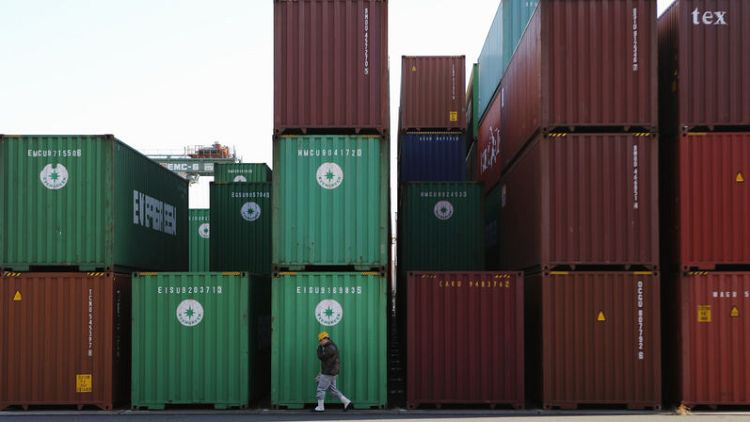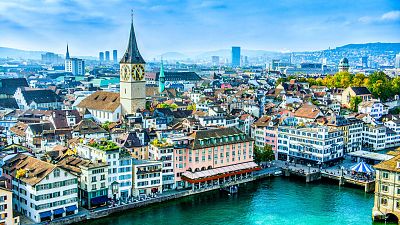By David Lawder
WASHINGTON (Reuters) - The United States has raised concerns over its "very large" trade deficit with Japan in the first round of negotiations between the two nations on a new bilateral trade deal.
No agreement was reached on individual issues after two days of discussions, Japan's economy minister said, but the two sides discussed trade issues focusing on goods, including farm products, both nations said.
Japan's Economy Minister Toshimitsu Motegi and his counterpart U.S. Trade Representative Robert Lighthizer agreed that digital trade would also be discussed "at the appropriate timing."
"The two officials reaffirmed their shared goal of achieving substantive results on trade," said the USTR statement issued after the talks on Tuesday.
The two-day meeting came after U.S. President Donald Trump and Japanese Prime Minister Shinzo Abe agreed last September to start trade talks in an arrangement that protects Japanese automakers from further tariffs while negotiations are under way.
Trump has made clear he is unhappy with Japan's trade surplus with the United States - much of it from auto exports - and wants a two-way agreement to address it. During the talks this week, Washington highlighted the "very large trade deficit with Japan – $67.6 billion in goods in 2018," according to the USTR statement.
Abe, meanwhile, has stressed that the new framework would be a Trade Agreement on Goods, or TAG, not a more wide-ranging free trade agreement that included investments and services that Japan has resisted.
"We have not reached an agreement on individual issues," Motegi told reporters after the talks. "Japan wants to carry out trade talks which will produce win-win results."
Motegi said the two nations have not agreed on auto issues and declined to comment on details. Japanese officials have said Tokyo would not accept auto export restrictions if the U.S. makes such demands.
The United States also indicated interest in agricultural products, Motegi said, but he told Lighthizer that Japan could make no concessions beyond what Tokyo has agreed on other economic partnerships.
Motegi also said that currency exchange rates should be handled by respective finance ministers.
Motegi and Lighthizer plan to meet again in Washington next week ahead of the summit between Abe and Trump. Motegi may also accompany Abe, who is expected to discuss North Korea and trade with Trump.
Motegi said on Monday he confirmed with Lighthizer that new trade talks would proceed based on the nations' joint statement issued last September. It said talks "will respect positions of the other government," drawing lines on autos and Japan's agriculture sector.
(Reporting by David Lawder in Washington; Writing by Malcolm Foster and Kaori Kaneko in Tokyo; Editing by Richard Chang and Jacqueline Wong)



